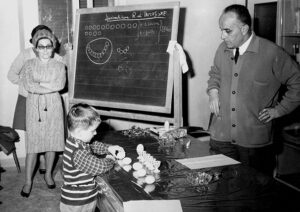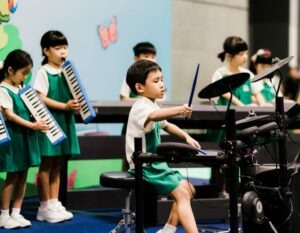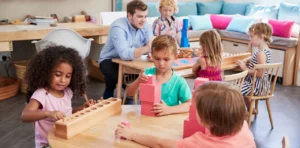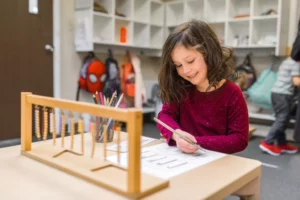While Dr. Maria Montessori’s career began in the nineteenth century; we believe that Montessori education is more relevant today than ever before. Not only because of our world’s needs but also because of research that consistently supports her approach.
Montessori method instills peace:
Montessori began her work over a century ago. The issue of peace is becoming increasingly pressing. Violence, hatred, and bigotry wreak havoc on our world. The news can be horrifying at times, and there is a desperate need for a new, more compassionate world. Montessori witnessed the importance of establishing a peaceful people during both World Wars. “Preventing [war] is the work of politics; establishing peace is the work of education,” she wrote. She was nominated three times for the Nobel Peace Prize.
Maria Montessori hoped that her work would lay the groundwork for world peace, more than executive functioning or social skills, advanced academic abilities, or curiosity. What other educational system can claim to have been created for this purpose? And, perhaps most importantly, will it work? It is the most deserving of goals.

Montessori activities teach Executive Functioning:
If you sit down with your phone during dinner, you will most likely receive alerts for breaking news in Egypt, which team won the Cubs game, who liked your recent Instagram post, and a few urgent questions from your friends and family. We can cope with this constant stream of input if we have well-developed executive functioning. If you’re not familiar with the term, executive functioning refers to your brain’s command center. It encompasses all of the procedures that enable us to manage ourselves and our tasks. It assists us in prioritizing important tasks, ignoring low-priority information, and focusing on work.
The Montessori environment is specially designed to help children develop this skill. Indeed, studies have shown that children who attend Montessori schools have better executive functioning. Children in this environment make frequent decisions about what work they will do when they will do it and how they will do it. Daily, these opportunities strengthen executive functioning and provide children with the skills they need to navigate our increasingly complex world.
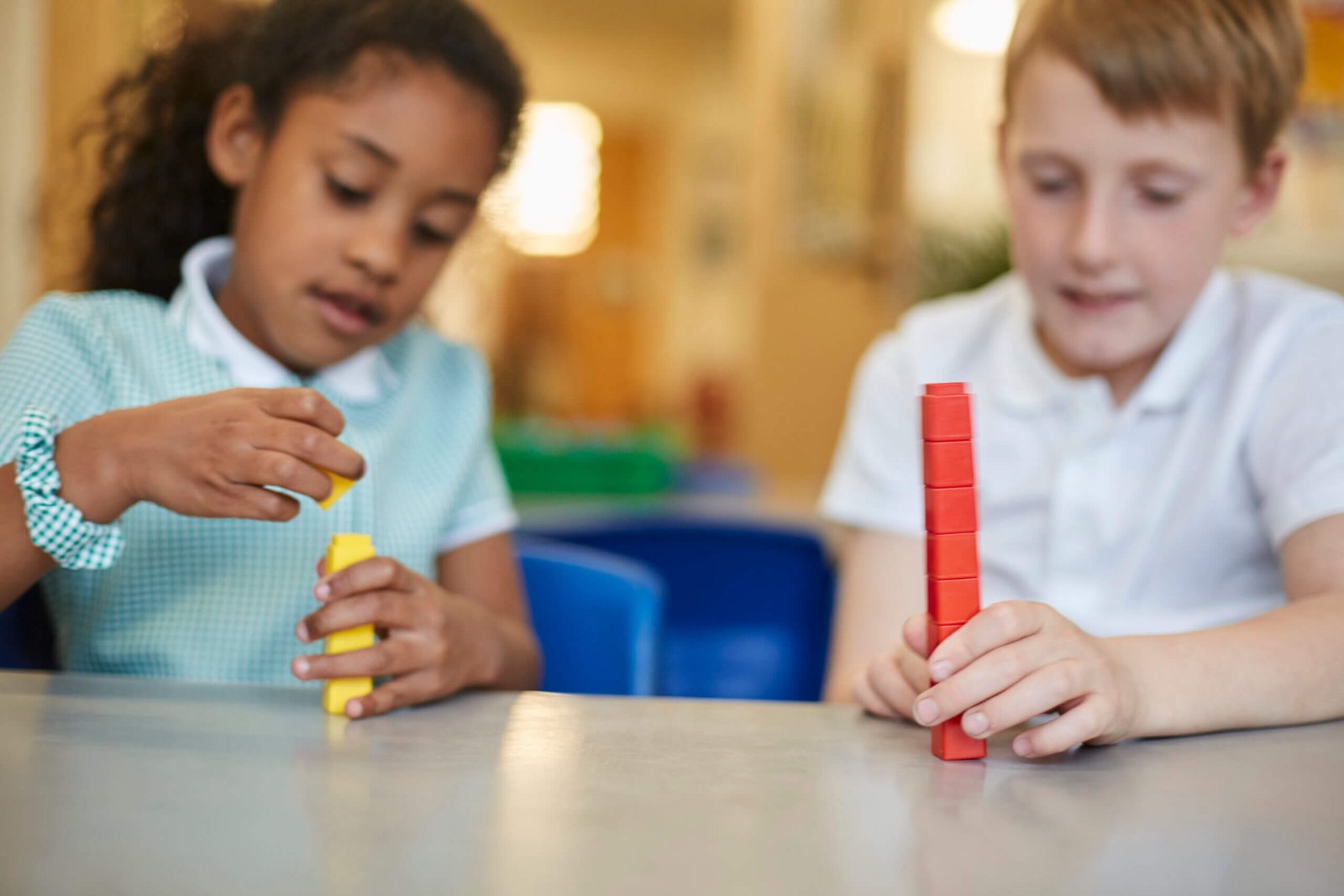
Montessori education teaches social skills.
The world is smaller than it’s ever been. Traveling is more convenient, and communication is faster and more frequent. We are exposed to people from all over the world and communicate with friends, family, and strangers on countless platforms. What does this mean for a population that is attempting to communicate positively and effectively in ways that their grandparents could never have imagined? It means that social skills are extremely
essential. Children who attend Montessori schools have a more positive and developed social understanding than their peers.
Taking care of their surroundings and each other is built into the Montessori curriculum. And opportunities for collaborative work are built-in throughout the day. This environment fosters advanced social skills, which are in high demand in today’s shrinking world.
Montessori students learn for the rest of their lives:
The job market is changing at a breakneck pace. Most students can no longer begin training for their dream job while still in college. “What do you want to be when you grow up?” is now purely hypothetical, because most of the jobs that will be available to our children when they enter the workforce have yet to be invented! It is becoming increasingly important for children to develop creative skills and a desire to learn new things. They can adapt to an evolving workplace and the modern demands of their jobs if they have these skills.
Children are intrinsically rewarded for exploring new information and challenging themselves because the Montessori environment is designed to encourage discovery, mastery, and process. They form a habit and a desire to learn more about whatever topic they choose. “Give me a Montessori kid, and I can teach him anything,” many high school teachers have observed. According to research, children who attend Montessori classrooms are creative, enjoy hard work, and seek to be challenged – all of which are necessary for today’s job market.
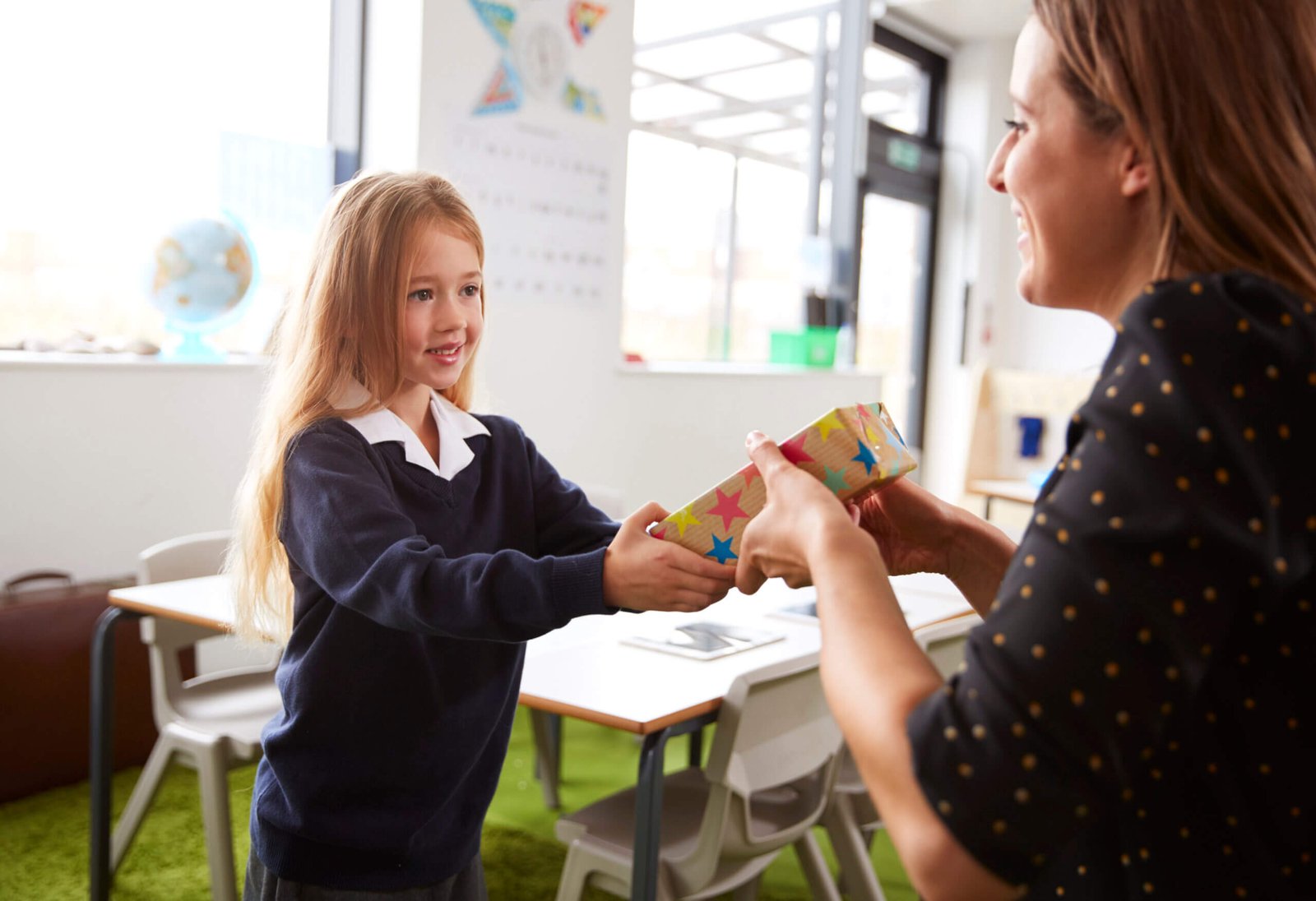
Final Thoughts:
As the world evolves and changes, it presents new challenges and opportunities. As more research becomes available, you can be more confident that Montessori is more than just a theory– it works. It will better prepare your children for the world they will inherit, and it will give us all the best chance of producing peaceful people who will one day establish peaceful earth. Children are intrinsically rewarded for exploring new information and challenging themselves because the Montessori environment is designed to encourage discovery, mastery, and process. Montessori education remains relevant in terms of what children require to thrive as adults in our modern culture.

